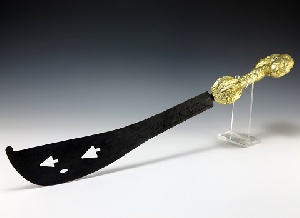 They also stressed the need for government to support the traditional Councils with official vans
They also stressed the need for government to support the traditional Councils with official vans
Traditional leaders in the Central Region have suggested to government and Parliament to consider allocating one per cent of Assemblies Common Fund (ACF) to recognised traditional authorities under their jurisdictions.
This they believe would ensure that the traditional authorities were well equipped and financially sound to monitor and support government's developmental agenda efficaciously.
According to them, it would as well support the traditional authorities without natural resources to spearhead development initiatives and meet regularly to settle disputes which were regarded as the axles for maintaining national co-existence, peace and tranquility.
"Traditional authorities play a very silent and almost unnoticed but significant contributions as the first point of call in settling communal disputes therefore, government should consider at least a percentage of ACF to supporting their operations," says Nenyi Ghartey III, Omanhen of Effutu Traditional Area.
The traditional authorities said this when Mr Kwamena Duncan, Regional Minister and his entourage paid separate courtesy calls on them in their respective palaces and traditional councils.
Apart from that, they also stressed the need for government to support the traditional Councils with official vans to complement their traditional activities as custom and the constitution imposed on them.
At Mankessim, the commercial city of the Region, Osagyefo Amanfo Edu VI, President of Mankessim Traditional Council, re-echoed their demands saying a well-equipped traditional Council would help in the quick settlement of the numerous traditional conflicts among others.
He said a well-resourced traditional council would also enhance research activities, public engagements and respond to the needs of the people as custom and tradition demands.
In addition to that, others called for a more open and transparent relationship between Assemblies and traditional authorities especially with projects implementation and development planning.
They argued that, for the people to really get involved and participate fully in the decentralisation process, government must make conscious efforts to engage the project beneficiaries to enable them support and monitor to weed out corruption.
The lack of this, they pointed out had resulted in many abandoned infrastructural projects such as markets, schools and toilet facilities among others across the country.
On maintaining national Peace, the revered leaders advised politicians to be watchful of their utterances and desist from making any unguarded statements that would dent Ghana's democratic credentials.
Politicians should work in unity and with one accord, offer alternative views and constructive criticisms that would bring more development by helping to sell the good image of Ghana to aid investments.
They appealed to Ghanaians to make national peace, tolerance, integration, peaceful co-existence and development their utmost goal.
Touching on their commitment to supporting national development, they called on the government to give them the necessary financial aid and other logistics for them to play their expected roles to support the national development agenda.